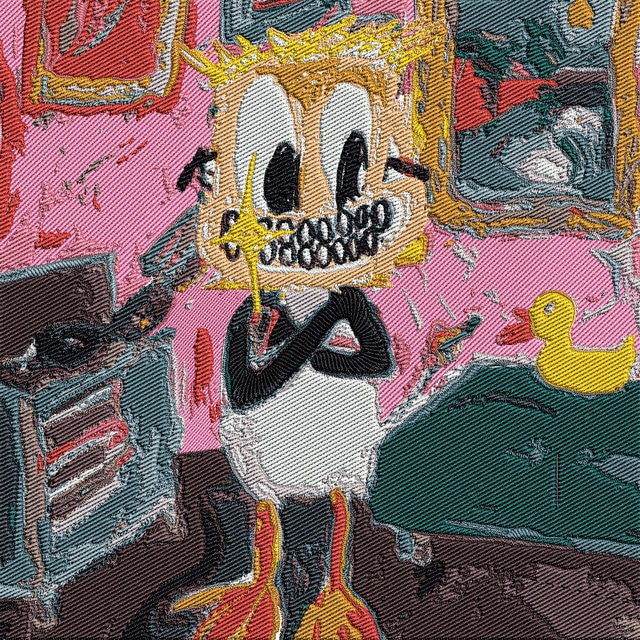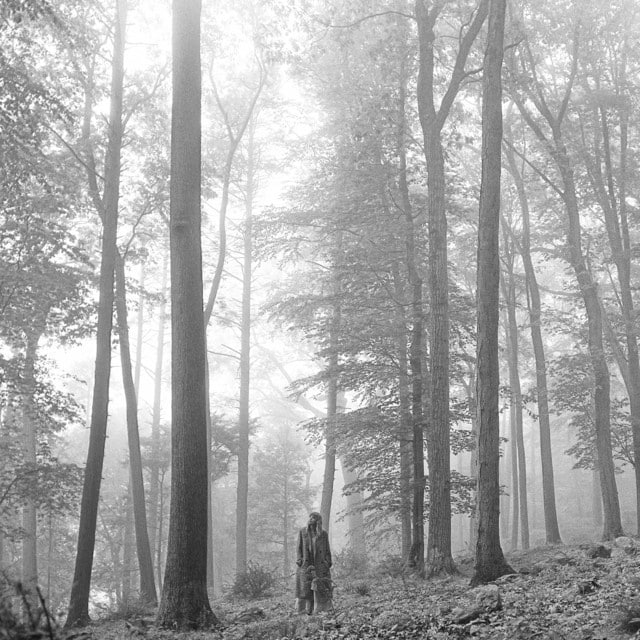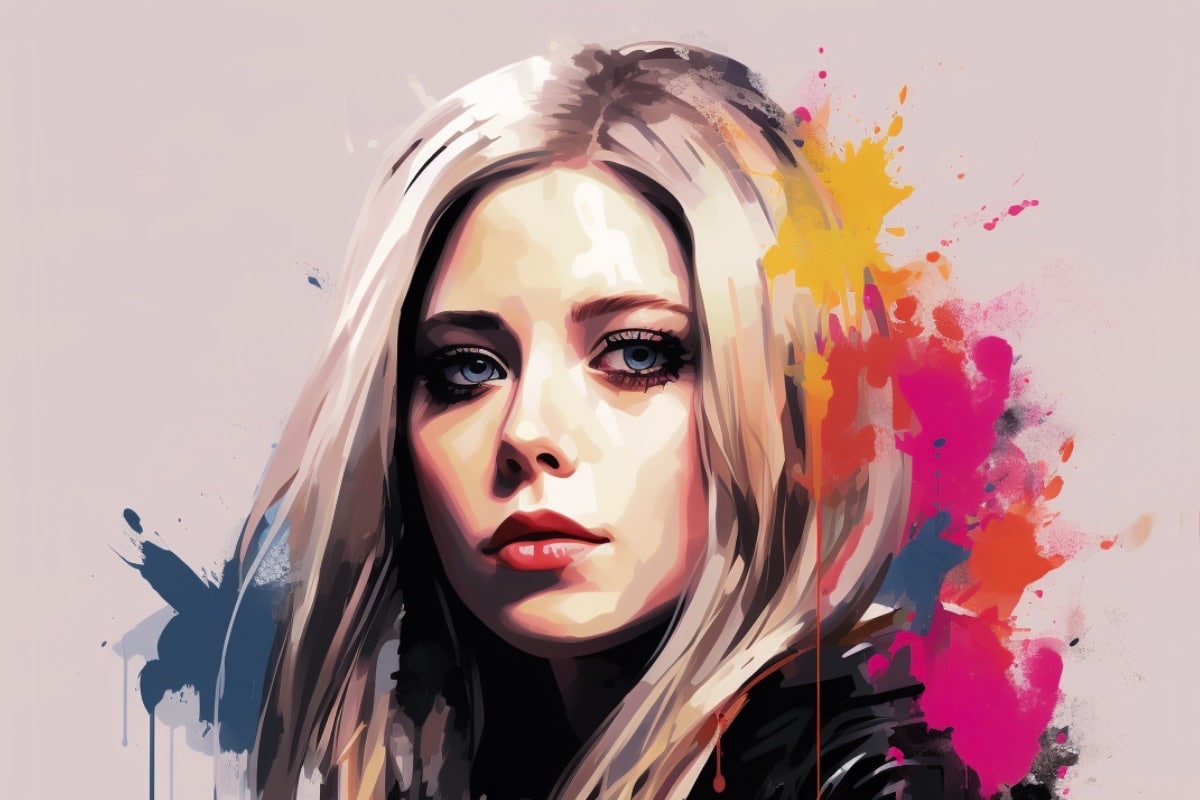Released: 2024
Label: Yot Club under exclusive license to Amuseio AB
For those well-versed in the vibrant world of synth-pop music, the name “Yot Club” strikes a chord of sophisticated melodies and explorative themes. The Alabama-born artist Ryan Kaiser, known to fans as Yot Club, is celebrated for his eclectic compositions and envelope-pushing ideas. And nowhere is this clearer than in his bountiful album, “Rufus.”
“Rufus,” released in the year 2024 under Yot Club’s exclusive license to Amuseio AB, is a thriving assortment of tracks that echo Yot Club’s distinct style. It sways between idiosyncratic love ballads like “Nostalgia” and existential reflections in “2084”, with each melody exploring a different facet of this gifted artist’s offerings. The album’s diverse repertoire, ranging from high-energy tracks like “Stuntman” to the introspective “Human Nature,” provides an outright immersive experience.
Recorded against a backdrop of global uncertainty, “Rufus” encapsulates the anxieties, desires, and dreams of a generation, all wrapped up in Yot Club’s slick production style. The songs “Drowning,” “Poison In Your Mind,” and “Too Far Gone” articulate modern society’s complexities, while balanced by tracks like “New Day” and “Pixel,” which carry a hopeful undertone. The eponymous track “Rufus” forms the album’s heart, and the finale “Lazy Eyes” leaves its listeners yearning for more.
So let’s get into it. From “Stuntman” to “Lazy Eyes,” here we are breaking down the album “Rufus” by “Yot Club.”
1 Stuntman
Take, for instance, the heartfelt confession: “A point that I wanna make is I’ve learned to fall, and after a certain point, there’s no pain at all.” This line bespeaks an eagerness to embrace life’s fragilities, charting a narrative that’s more about resilience than despair. Yot Club skillfully crafts a synergy between past and future, as subtly hinted in the line, “Define a future, live into the past.” This serves as an allegory for the tension between embracing one’s history while yearning for what lies ahead. The repetitive “no pain at all” lingers, hinting at a sense of numbing resignation or perhaps a hard-won desensitization, making “Stuntman” a masterclass in emotional rawness transported through pop music’s seemingly simple verse.
2 Nostalgia
The line, “Nostalgia, it follows you, I never meant to let that feeling go” captures this essence brilliantly, revealing an intrinsic human tendency to cling onto the past. The constant interplay between ‘Nostalgia’ and ‘Insomnia’ transforms the song into a haunting exploration of memory and thought, a tacit confession of the sleepless nights spent dwelling on the unchangeable past. By stating, “If I don’t know what’s right, I’ll just make something up”, Yot Club deftly encapsulates the perplexing navigation of life, where uncertainty often leads to fabrications. Hence, “Nostalgia” isn’t just a track, it’s a poignant commentary on how past affects the present, forever trailing behind in its wake like an insistent shadow.
3 Fool
The biting line, “I’m just a boy, I feel like I could die right now,” lays bare an openness about youth’s magnitude and melancholia. The chorus, “Spend the time with you/ It keeps on falling through/ I’m just a fool to play this game,” hits home the lament of chasing lost time, snagged in a seemingly endless loop of missteps. This track is a tour de force of introspection with lyrics that distill the essence of stumbling through life’s labyrinth, constantly questioning decisions and yearning for directions. The bittersweet acknowledgment of feeling like a “fool” strikes a chord. Who among us hasn’t felt adrift, a clueless casino patron in the high-stakes game of life?
4 2084
From the opening line, “All I want, all I want is to go to bed / Thinking about you with him, and I’m seeing red,” the pain is palpable. The protagonist grapples with jealousy, desolation, and a sense of disconnection, culminating in the hard-hitting chorus, “But, I just cannot feel you / I look to the sky, then I hope that you’re somewhere good / ‘Cause, I just cannot feel you.” It’s not just a breakup song; it’s a confession of numbness, a plea for regained connection, and a yearning for better days—themes that resonate universally with anyone who’s ever had to untangle their heart from another. It’s 2084, but it feels like the end of the world, and Yot Club unflinchingly takes us there.
5 New Day
“They’re using trauma like it’s common sense / Rather confusing that I need all of them, oh” unveils an evocative remark on coping mechanisms, highlighting the skewed reality of dealing with personal crisis. The lyrics then segue into a poignant introspection: “Wake up, you’ll never get back to town / Wake up, I felt some new energy / I’m sorry but it’s over in a blink of an eye / I wish that I was something you could always rely”, embodying vulnerability and the transience of human relationships. This rollercoaster of raw emotion is seen throughout, from a visceral exploration of trauma to an inquiry into the fickle nature of human connection, making “New Day” a formidable track in the ‘Rufus’ album lineup.
6 Human Nature
The lyrics, “You turned into a stranger, could’ve seen it coming / It’s human nature, everyone’s gonna leave sooner or later” jerk us back to the harsh reality that people evolve, often walking out of our lives, leaving us grappling with a feeling of emptiness and disappointment. However, the song goes beyond a mere lamentation over lost relationships. There’s an edge of acceptance to it, embodied in the refrain, “Too used to running, but I’m not a savior / I won’t be looking back.” Here, Yot Club denotes the conscious decision to move on and not get entangled in the thorny maze of trying to save relationships that are fated to dissolve – a poignant, gut-wrenching confrontation with the bittersweet nature of human connections.
7 Drowning
Imbued with a sensation of feeling submerged in overwhelming circumstances, the song pulls the audience into its emotive undertow. A standout verse, “Walk through the garden crying / It’s all routine to you,” paints a stark picture of habitual despair, reinforced by the poignant echo of “But I’m drowning for some more /And you’re drowning.” This lingering refrain becomes a potent symbol of two individuals trapped in their respective emotional quagmires. The mournful mention of a “new moon rising / To shorten up the day” suggests an impending phase of darkness, implying the cyclical nature of their struggle. Each line is a haunting reminder of the song’s central theme, making “Drowning” a lyrical exploration of sorrow and persistence in the face of ongoing adversity.
8 Poison In Your Mind
Yot Club’s raw lyricism, “Ignoring all of the signs, you see / It’s the poison in your mind” paints a vivid image of denial and internal struggle. It casts a harsh light on the obsessive cycle of overthinking, symbolized here by “the poison in your mind.” The repeated line, “The voices keep changing,” powerfully encapsulates the constant shift in perspective the mind often goes through, an echoing sentiment many can certainly relate to. There’s a sobering undertone to the song as Yot Club notes, “Is it all ’cause you’re bored now? / You’ve got nothin’ to do / You feel your life has no meaning,” reflecting on the stagnation and dissatisfaction that often leads to the mental poison the song poignantly discusses.
9 Too Far Gone
The poignant line, ‘No figure of speech could tell you where I’m at right now,’ illustrates an engulfing despair, one that seems uncommunicable. The recurrent refrain, ‘I’m too far gone, and it carries on,’ laments the feeling of losing oneself amidst the flurry of superficial connections; a feeling echoed by ‘The people around me make me feel out of touch.’ The lyrics further delve into an overwhelming paradox of shared loneliness with ‘We were the same, Bonding over pain, it’s different now, I found my own way out.’ Underneath it all, there’s a sliver of self-reliance—a sacred solitude where one can find fleeting freedom.
10 Pixel
This bold affirmation echoes sentiments of insignificance and detachment engendered by the overwhelming digital age. With the line, “This technology makes me so aware of how small I am”, the song juxtaposes the vastness of the digital universe against the individual’s petite existence, evoking feelings of solipsistic melancholy. The repeat lines “In the past life close to the borderline, I try to call you up with the boost from the satellite” unveil a haunting commentary on the struggle to connect in a world made ironically disparate by its connectedness. Yot Club’s resonant traversal through the thickets of tech-induced isolation and self-awareness is a testament to their lyrical depth and capacity for resonant storytelling.
11 Other World
Particularly emotive is the line, “I’ve fallen to another world,” repeated like a mantra throughout the song – a clear self-expression of a desire to break free from one’s own confines. The lyrics, “Try waiting around until you’re certain, nobody wants to be a burden,” further add to the introspective nature of the track, reflecting an emotional tug-of-war between self-doubt and the need for validation. This interplay between the mundane and the fantastical gives “Other World” its complex character, revealing a deep exploration of inner thought and external perception – the ultimate pop music dichotomy.
12 Rufus
The emotive and repetitive inquiry, “Don’t nobody know what he said?” drives home the sense of chaos and confusion at the song’s core. The identification of the lead character as “wrong, wrong, wrong, wrong” adds an almost obsessive layer to the narrative, amplifying the disconnect the protagonist experiences. As the protagonist disengages themselves with lines like “But I don’t listen to what he said. And what’s all goin’ on in his head; It’s wrong, wrong, wrong, wrong,” there’s a tangible sense of frustration and alienation. The choral proclamation, “Oh, there’s been a big mistake; Everybody stay in place; I’m sorry there’s a big delay; There’s no way to communicate,” unveils a narrative of a society held on pause, desperately grappling to understand and be understood, with the silence between the lyric lines hanging heavy with tension and unspoken thoughts.
13 Lazy Eyes
Its lyrics evoke a sense of dislocation and fatigue, with the protagonist languishing within grey confinements and yearning for simple delights like “some time out in the sun”. Perhaps one of the most resonating lines though, is “Even though my batteries are low/But I’ll still make it on”, a testament to human resilience amidst external chaos. The refrain “There’s a part of me that’s pulling out of touch/My lazy eyes can’t seem to grasp what’s going on” further emphasises the disconnect between the individual and the taxing reality around them. By the song’s end, the protagonist succumbs to chaos, repeatedly admitting, “I surrender to the chaos that’s got me bound down to the floor/Never felt like this before”, an admission of desolation but also of surrender to the challenges of life.








